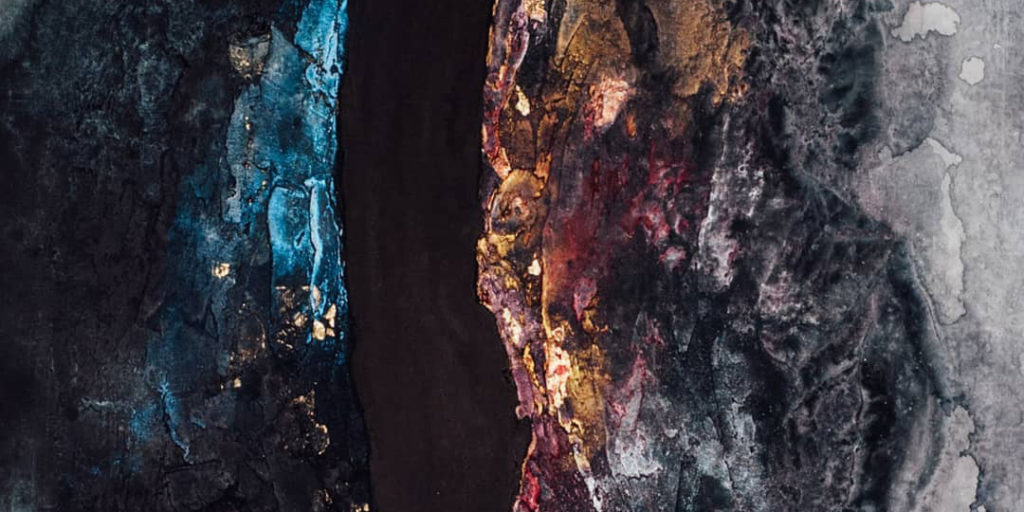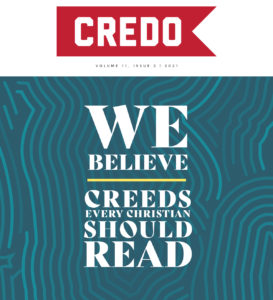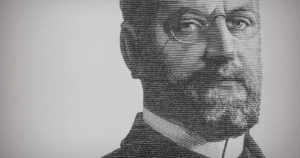
Creeds Every Christian Should Read
I n the latest issue of Credo Magazine, we are meditating on some of the best early creeds and confessions of the Church’s history. We believe that self-consciously standing on the faithful foundation of those who have gone before us in the faith is one of the best ways to guard the deposit of faith, once for all delivered to the saints (cf., Jude 3). Therefore, we have included some of these “greatest hits” here. Below, you will find The Apostles Creed, The Nicene Creed (381), The Definition of Chalcedon (451), and the canons of The Council of Orange (529). We commend them to you for your edification.
n the latest issue of Credo Magazine, we are meditating on some of the best early creeds and confessions of the Church’s history. We believe that self-consciously standing on the faithful foundation of those who have gone before us in the faith is one of the best ways to guard the deposit of faith, once for all delivered to the saints (cf., Jude 3). Therefore, we have included some of these “greatest hits” here. Below, you will find The Apostles Creed, The Nicene Creed (381), The Definition of Chalcedon (451), and the canons of The Council of Orange (529). We commend them to you for your edification.
The Apostles Creed
I believe in God, the Father almighty,
creator of heaven and earth.
I believe in Jesus Christ, his only Son, our Lord,
who was conceived by the Holy Spirit
and born of the virgin Mary.
He suffered under Pontius Pilate,I believe in God, the Father almighty, creator of heaven and earth. Click To Tweet
was crucified, died, and was buried;
he descended to hell.
The third day he rose again from the dead.
He ascended to heaven
and is seated at the right hand of God the Father almighty.
From there he will come to judge the living and the dead.
I believe in the Holy Spirit,
the holy catholic church,
the communion of saints,
the forgiveness of sins,
the resurrection of the body,
and the life everlasting. Amen.
The Nicene Creed
We believe in one God,
the Father almighty,
maker of heaven and earth,
of all things visible and invisible.God from God, Light from Light, true God from true God, begotten, not made; of the same essence as the Father. Click To Tweet
And in one Lord Jesus Christ,
the only Son of God,
begotten from the Father before all ages,
God from God,
Light from Light,
true God from true God,
begotten, not made;
of the same essence as the Father.
Through him all things were made.
For us and for our salvation
he came down from heaven;
he became incarnate by the Holy Spirit and the virgin Mary,
and was made human.
He was crucified for us under Pontius Pilate;
he suffered and was buried.
The third day he rose again, according to the Scriptures.
He ascended to heaven
and is seated at the right hand of the Father.
He will come again with glory
to judge the living and the dead.
His kingdom will never end.
And we believe in the Holy Spirit,
the Lord, the giver of life.
He proceeds from the Father and the Son,
and with the Father and the Son is worshiped and glorified.
He spoke through the prophets.
We believe in one holy catholic and apostolic church.
We affirm one baptism for the forgiveness of sins.
We look forward to the resurrection of the dead,
and to life in the world to come. Amen.
The Definition of Chalcedon
We, then, following the holy Fathers, all with one consent, teach men to confess one and the same Son, our Lord Jesus Christ, the same perfect in Godhead and also perfect in manhood; truly God and truly man, of a reasonable soul and body; the same perfect in Godhead and also perfect in manhood; truly God and truly man Click To Tweetconsubstantial with us according to the manhood; in all things like unto us, without sin; begotten before all ages of the Father according to the Godhead, and in these latter days, for us and for our salvation, born of the virgin Mary, the mother of God, according to the manhood; one and the same Christ, Son, Lord, Only-begotten, to be acknowledged in two natures, inconfusedly, unchangeably, indivisibly, inseparably; the distinction of natures being by no means taken away by the union, but rather the property of each nature being preserved, and concurring in one Person and one Subsistence, not parted or divided into two persons, but one and the same Son, and only begotten, God the Word, the Lord Jesus Christ, as the prophets from the beginning have declared concerning him, and the Lord Jesus Christ himself taught us, and the Creed of the holy Fathers has handed down to us.
The Canons from the Council of Orange
CANON 1. If anyone denies that it is the whole man, that is, both body and soul, that was “changed for the worse” through the offense of Adam’s sin, but believes that the freedom of the soul remains unimpaired and that only the body is subject to corruption, he is deceived by the error of Pelagius and contradicts the scripture which says, “The soul that sins shall die” (Ezek. 18:20); and, “Do you not know that if you yield yourselves to anyone as obedient slaves, you are the slaves of the one whom you obey?” (Rom. 6:16); and, “For whatever overcomes a man, to that he is enslaved” (2 Pet. 2:19).
CANON 2. If anyone asserts that Adam’s sin affected him alone and not his descendants also, or at least if he declares that it is only the death of the body which is the punishment for sin, and not also that sin, which is the death of the soul, passed through one man to the whole human race, he does injustice to God and contradicts the Apostle, who says, “Therefore as sin came into the world through one man and death through sin, and so death spread to all men because all men sinned” (Rom. 5:12).
CANON 3. If anyone says that the grace of God can be conferred as a result of human prayer, but that it is not grace itself which makes us pray to God, he contradicts the prophet Isaiah, or the Apostle who says the same thing, “I have been found by those who did not seek me; I have shown myself to those who did not ask for me” (Rom 10:20, quoting Isa. 65:1).
CANON 4. If anyone maintains that God awaits our will to be cleansed from sin, but does not confess that even our will to be cleansed comes to us through the infusion and working of the Holy Spirit, he resists the Holy Spirit himself who says through Solomon, “The will is prepared by the Lord” (Prov. 8:35, LXX), and the salutary word of the Apostle, “For God is at work in you, both to will and to work for his good pleasure” (Phil. 2:13).
CANON 5. If anyone says that not only the increase of faith but also its beginning and the very desire for faith, by which we believe in Him who justifies the ungodly and comes to the regeneration of holy baptism — if anyone says that this belongs to us by nature and not by a gift of grace, that is, by the inspiration of the Holy Spirit amending our will and turning it from unbelief to faith and from godlessness to godliness, it is proof that he is opposed to the teaching of the Apostles, for blessed Paul says, “And I am sure that he who began a good work in you will bring it to completion at the day of Jesus Christ” (Phil. 1:6). And again, “For by grace you have been saved through faith; and this is not your own doing, it is the gift of God” (Eph. 2:8). For those who state that the faith by which we believe in God is natural make all who are separated from the Church of Christ by definition in some measure believers.
CANON 6. If anyone says that God has mercy upon us when, apart from his grace, we believe, will, desire, strive, labor, pray, watch, study, seek, ask, or knock, but does not confess that it is by the infusion and inspiration of the Holy Spirit within us that we have the faith, the will, or the strength to do all these things as we ought; or if anyone makes the assistance of grace depend on the humility or obedience of man and does not agree that it is a gift of grace itself that we are obedient and humble, he contradicts the Apostle who says, “What have you that you did not receive?” (1 Cor. 4:7), and, “But by the grace of God I am what I am” (1 Cor. 15:10).

